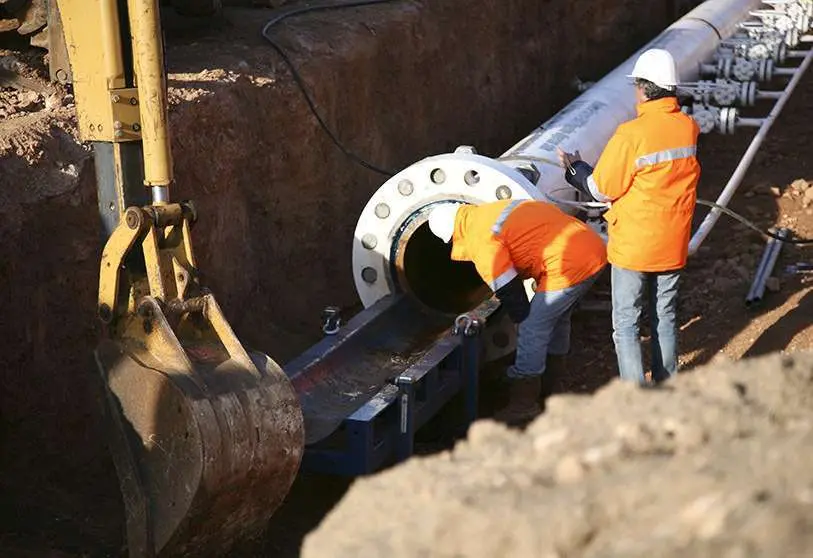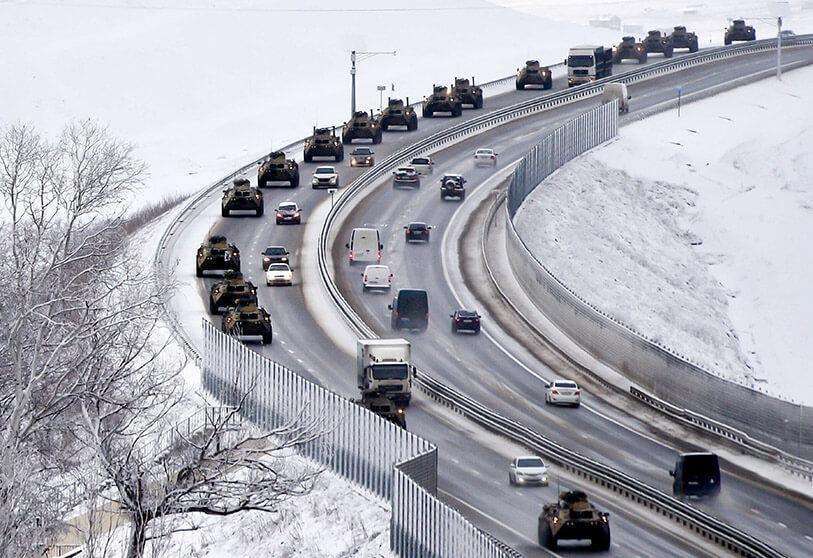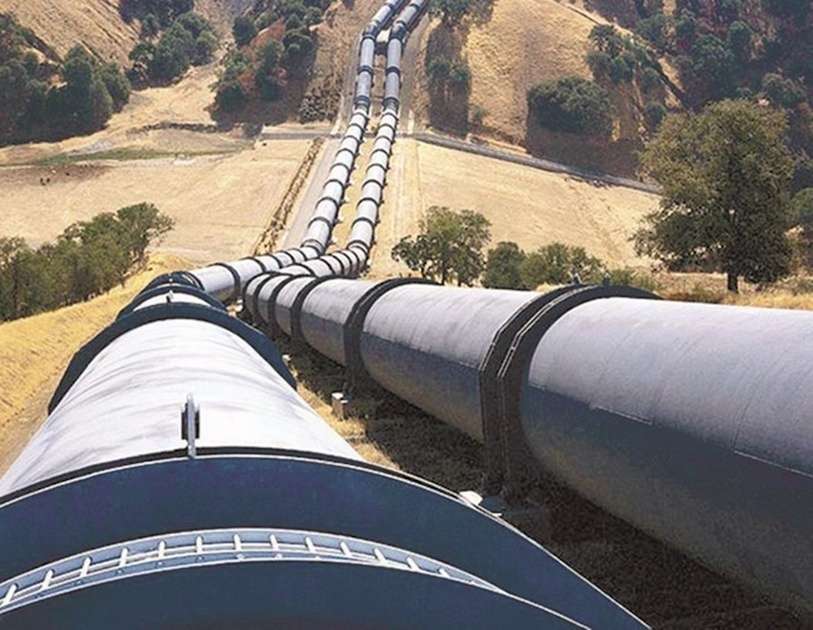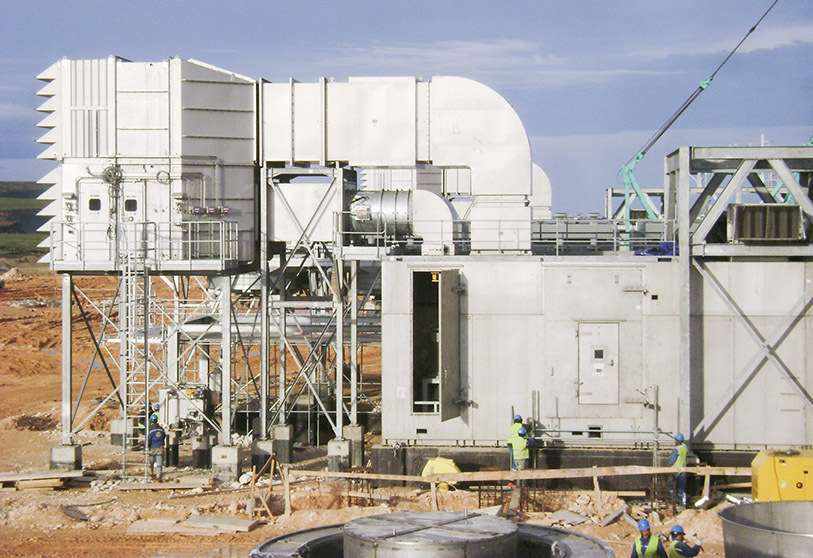España pierde más con el conflicto del gas entre Argelia y Marruecos que en Ucrania

The support of Pedro Sánchez's government for the US in the Ukrainian conflict, forced to the extreme, is incredulous. An unlikely war between Russia and Ukraine will not create serious gas supply problems for Spain, although a possible cut-off to Europe will send world energy prices soaring. With the transport of Algerian gas through the Strait of Gibraltar closed by Morocco, Spain has to supply itself on the world liquefied gas market, to a large extent, with the only drawback being the high price paid.
In fact, the third vice-president and minister for Ecological Transition, Teresa Ribera, has ruled out supply risks, but admits that the problem will come from the international oil and gas markets, with the skyrocketing price. It would follow and surpass those of crude oil. This week, the price of a barrel of crude oil has already reached 90 dollars, 30 dollars more than estimated by the Executive in the 2022 Budget, and everything suggests that it could soon reach 100 dollars if the tension of war continues.
.
Massive question marks
The situation of Spain's energy map is full of questions at all levels. The cost of electricity has still not stabilised due to gas prices - the megawatt hour is over 232 euros - and petrol prices are still rising, something that complicates both consumers and Pedro Sánchez's government due to the problem not only of inflation but also of crude oil imports. The General State Budget is planned for an average barrel of 60.4 dollars, compared to the 71.6 dollars it contemplated for last year.
At the moment, crude oil prices are 30 dollars higher than the estimates made by the government in the 2022 budget, which means that the energy bill for oil purchases is soaring in the first month of the year.
The problem is prices
Therefore, the geopolitical situation between Russia and Ukraine is of less concern to Spain because of the effect that the threat of cutting off gas supplies to Europe could have than because of the domino effect it could have on prices, both for oil and gas. Russia currently sells us little more than 9% of the gas we consume, so a possible supply cut could be taken over by other producing countries.

"It is clear that we are impacted by the evolution of gas prices at a time when there is not only a significant increase in demand from Asian markets. There are also major tensions with what is still the leading supplier of natural gas (Russia) for most European countries", admitted Minister Ribera.
The dilemma for Spain in terms of natural gas continues to be, on the one hand, the high cost of its price, as it is the main reason why electricity tariffs are not falling. But there is also the problem caused by the closure of the Algerian Maghreb-Europe gas pipeline, through which some 6 billion cubic metres of gas entered Spain.
Algeria-Morocco conflict
Algeria and relations with Morocco do represent a real conflict for Pedro Sánchez's government. The closure of the Maghreb-Europe gas pipeline (GME) due to poor relations between Algeria and Morocco has left Spain dependent only on a pipeline supply channel through the Medgaz facility that connects with the distribution network from Almeria and transport by ship. A possible failure in this supply channel would put the country at risk of a possible blackout.
With the closure of the GME pipeline, in the words of the minister, there is no serious cause for concern, although some experts warn of the vulnerability Spain now faces after the closure of the pipeline. This facility had a capacity to transport 8 billion cubic metres, a quantity that must now be covered, partly by the Medgaz pipeline through Almería, and partly by ship.

The Algerian and Spanish governments have signed an agreement to increase the transport capacity of the second Medgaz gas pipeline through Almeria by 2 billion cubic metres, which will increase it from 8 billion cubic metres to 10 billion cubic metres. This means that there is a large quantity of natural gas - around 4 billion cubic metres - which has to be transported by gas tankers from other supplying countries.
Although gas arrives in Spain from 14 countries, it should be remembered that Algeria supplies more than 40% of consumption, which means that we are totally dependent on the Algerian government. Sources consulted acknowledge, however, that Spain's diversity of supply allows us to transport liquefied natural gas from other areas.
THE US HOLDS THE KEY
According to data from the Corporation of Strategic Reserves (Cores), up to last November, Algeria had supplied 44.5% of the natural gas imported by Spain, followed by the USA with 13.3%, the United States and Nigeria with 10.9%, Russia (8.7%), Qatar (6.7%), France (4.6%), Trinidad and Tobago (3.3%) and Norway (2.9%). Other countries such as Equatorial Guinea, Angola, Peru, Portugal, Egypt, Cameroon and Argentina also sell gas to us.
Following the closure of the Algerian pipeline, both the company managing the system, Enagás, and the marketers, have implemented a security plan to channel all the alternative routes for importing liquefied natural gas. Enagás has imposed continuous control operations on the entire network and regasification plants to maintain maximum reserves and avoid possible technical failures. "The entire gas infrastructure is at maximum capacity," they say.

There are six regasification plants in the country. Four of them depend directly on Enagás (Barcelona, Gijón, Cartagena and Huelva). A fifth plant is located in the port of Bilbao and is 50% owned by Enagás and the Ente Vasco de la Energía (EVE). A sixth is also controlled by Enagás (72.5%), Osaka Gas (20%) and Oman Oil Company (7.5%).
The US is one of the countries which, for the time being, is supplying part of the gas Spain needs to cover the cutback caused by the closure of part of the Algerian supply network. The problem is the distance and the high freight costs of transporting liquefied gas.








